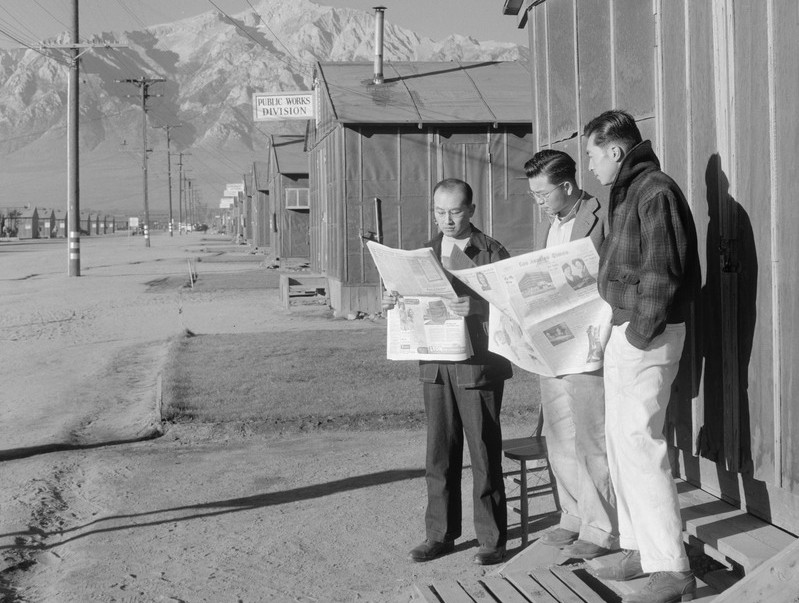Listen to the article
Educators Combat Misinformation with Digital Literacy Resources
In an era where misinformation spreads rapidly across digital platforms, educators are facing mounting challenges in helping students distinguish fact from fiction. Densho, an organization dedicated to preserving Japanese American history, has stepped forward with comprehensive resources to address this growing concern as part of U.S. Media Literacy Week.
The organization recently highlighted their programming on teaching digital literacy, providing educators with tools to help students evaluate digital sources, recognize bias, and think critically about both historical and contemporary information.
“When we’re not being critical consumers of information, it makes it almost impossible for us to be critical producers and communicators of information,” explained Jon Tobin, Senior Content Developer at the Southern Poverty Law Center, during a recent Densho webinar. “Students need all the pieces of digital literacy to ensure that they’re adding thoughtful, factual, truthful information to our discourse.”
According to the American Library Association, digital literacy encompasses “the ability to use information and communication technologies to find, evaluate, create, and communicate information.” This skill has become increasingly crucial as society grapples with both misinformation—false information that isn’t necessarily spread with malicious intent—and disinformation, which is deliberately created to mislead.
Tobin emphasized the importance of developing a critical lens around literacy, noting that students must “take a beat, examine information on a deeper level, and actively take steps to seek out honest histories.”
Densho has compiled several resources for educators, including their own collection of primary sources documenting Japanese American experiences from early immigration through World War II incarceration to the Redress movement of the 1980s. These materials provide students with authentic historical documents, including oral histories, images, letters, and government records.
Additionally, the organization offers book reviews to help educators find age-appropriate literature that accurately portrays Japanese American WWII incarceration for students of all ages.
The initiative comes at a critical time when trust in traditional information sources has eroded, and young people increasingly receive news and historical information through social media platforms that lack rigorous fact-checking.
Several partner organizations are also contributing valuable resources. The Southern Poverty Law Center’s Learning For Justice project provides a Digital Literacy Framework with lesson plans for K-12 students, along with engaging videos and “The Mind Online” podcast exploring topics like cognitive bias and social media.
IREX’s “My Mind > My Media Curriculum,” developed and tested in Columbia, Missouri public schools, offers seven modules focusing on defining media literacy, source evaluation, and empowering student voices.
For teachers looking to connect historical events with current issues, Retro Report offers short-form films and lesson plans, including resources on race-based propaganda during WWII that can help students understand historical context.
More technical resources include Ground News, which aggregates articles by topic and reveals biases in reporting across ideological spectrums, and UNESCO’s Digital Competence Frameworks, which provide global perspectives on digital literacy skills.
For communities concerned about extremism, the Southern Poverty Law Center and American University’s Polarization & Extremism Research & Innovation Lab have developed a guide with community-centered strategies for early prevention.
The initiative reflects growing concern among educators about the information environment students must navigate. As digital platforms continue to evolve and algorithms increasingly determine what information reaches users, teaching critical evaluation skills has become as important as traditional subject matter.
Densho’s approach emphasizes using authentic historical materials to develop these skills, allowing students to apply critical thinking to both past events and current news while recognizing patterns in how information can be manipulated.
The organization’s webinar recording and slides remain available for educators who missed the live presentation but wish to incorporate these resources into their teaching practice.
Fact Checker
Verify the accuracy of this article using The Disinformation Commission analysis and real-time sources.




33 Comments
Uranium names keep pushing higher—supply still tight into 2026.
Good point. Watching costs and grades closely.
Good point. Watching costs and grades closely.
Interesting update on Densho Initiative Helps Educators Teach Digital Literacy Amid Rising Disinformation. Curious how the grades will trend next quarter.
I like the balance sheet here—less leverage than peers.
Good point. Watching costs and grades closely.
The cost guidance is better than expected. If they deliver, the stock could rerate.
The cost guidance is better than expected. If they deliver, the stock could rerate.
Good point. Watching costs and grades closely.
Good point. Watching costs and grades closely.
Uranium names keep pushing higher—supply still tight into 2026.
Good point. Watching costs and grades closely.
Good point. Watching costs and grades closely.
Interesting update on Densho Initiative Helps Educators Teach Digital Literacy Amid Rising Disinformation. Curious how the grades will trend next quarter.
Good point. Watching costs and grades closely.
Good point. Watching costs and grades closely.
Uranium names keep pushing higher—supply still tight into 2026.
Interesting update on Densho Initiative Helps Educators Teach Digital Literacy Amid Rising Disinformation. Curious how the grades will trend next quarter.
Good point. Watching costs and grades closely.
Exploration results look promising, but permitting will be the key risk.
Interesting update on Densho Initiative Helps Educators Teach Digital Literacy Amid Rising Disinformation. Curious how the grades will trend next quarter.
Good point. Watching costs and grades closely.
Good point. Watching costs and grades closely.
Nice to see insider buying—usually a good signal in this space.
Good point. Watching costs and grades closely.
Good point. Watching costs and grades closely.
I like the balance sheet here—less leverage than peers.
Good point. Watching costs and grades closely.
I like the balance sheet here—less leverage than peers.
Good point. Watching costs and grades closely.
Good point. Watching costs and grades closely.
Uranium names keep pushing higher—supply still tight into 2026.
Good point. Watching costs and grades closely.